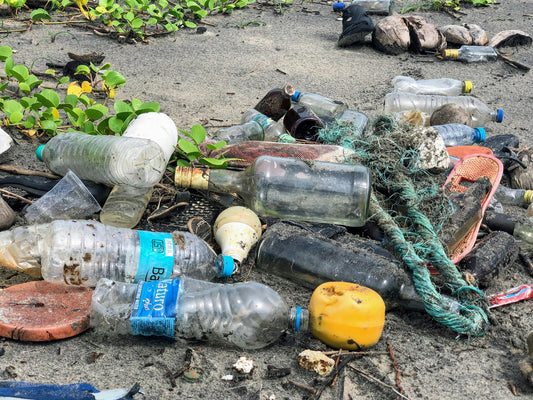Share
Influencing government policy and decision-making through advocacy has become a major force in global politics. It’s commonly known as lobbyism.
Lobbyism has always been an important part of politics. It influences policy and determines which interests are most important to governments and international organizations.
Many factors, including globalization, technological advancements, and the growing complexity of international issues, have greatly enhanced the role of lobbyism over time.
In this article, we look at the history, evolution and methods of lobbying. Then we discuss the players involved, the impact of lobbying on policy and the issues surrounding it.
The History and Evolution of Lobbyism

Lobbying is nothing new: The practice has deep roots, as long as there were influential citizens and orators, including in ancient Greece and Rome, who wrestled to sway political decision-making.
But it didn’t really take on the form it does today until the 19th century. Especially in the United States, where people and groups began to work to influence lawmakers in favor of a practice.
The very term ‘lobbying’ dates back to a period when the advocates in question waited in the lobbies of parliamentary buildings to catch legislators out and to bend their opinions.
Lobbying was a highly popular activity among corporations, unions and advocacy groups as industrialization prevailed and they sought to protect their interests.
In the 20th and 21st centuries this trend became global and international organizations, multinational corporations, and non government organizations (NGOs) began to exercise more influence over national and global policy making.
Today, lobbyism is a permanent part of democratic and autocratic governments, determining health care, taxation, environmental regulations and trade agreements.
Common Impacts of Lobbying (Examples)
While below we will focus on the environment, lobbying is influencing many sectors and areas of political decision-making. While lobbying has a negative connotation, not all of those impacts are bad for society. Take a look at two examples, one negative and one positive.
Negative example - big pharma:
Lobbying has a profound effect on the pharmaceutical industry. Every year, pharmaceutical companies spend millions of dollars lobbying to change healthcare legislation.
The industry spent around $372 million in U.S. lobbying in 2022 This spending has resulted in policies that favor drug manufacturers, including extended patent protections and limited price negotiations for Medicare drugs.
Thus, the lobbyists are directly responsible for high drug prices in the U.S. that many Americans are suffering from.
Positive example - labor laws:
Lobbying can also have positive outcomes for society, for example when it comes to labor unions.
Some labor laws at both state and federal levels have been shaped by lobbying. For instance, in California and New York, labor unions have successfully lobbied for higher minimum wage laws than the federal standard.
These state level advocacy campaigns have increased wages for millions of workers, and expanded protections such as paid leave.
What Are The Key Players in Global Lobbying

Technically, anyone could be a lobbyist. If you decided to influence global politics, no one can stop you. So go for it! But don't join the dark side 😉.
Generally, most lobbyists come from three groups.
Large Corporations:
Companies like McDonald's, Coca-Cola, and Honda spend billions of dollars every year to influence global and national policies.
Lobbyists work to influence tax laws and seek advantage in trade agreements on the behalf of corporations, lobbies serve to secure companies’ financial interests.
Those corporate interests are often represented indirectly by industrial associations. The American Chemistry Council for example represents big parts of the oil and plastic industries. It has made a name for itself by fighting environmental regulations like the plastic bag ban.
Non-Governmental Organizations (NGOs):
Greenpeace, Amnesty International and Human Rights Watch all lobby for policy decisions on environmental protection, human rights, and social justice.
Governments:
In the world of international diplomacy and trade, countries themselves act as lobbyists.
Instead governments lobby with international organizations like the United Nations (UN) and the World Trade Organization (WTO) into submitting terms which they think will be favorable in international treaties and agreements.
What Are Some Common Methods of Lobbying?
Direct Lobbying:
Personal contact (face-to face meetings and telephone calls; or writing to a legislator for one’s cause) to get across one’s views and influence legislator’s action in the cause one is attempting to promote is known as direct lobbying.
Grassroots Lobbying:
The emphasis with this approach is on calling the general public into action by using campaigns, petitions, mass demonstrations or encouraging constituents to write letters to their representatives.
Coalition Building:
Often, lobbying groups form alliances with other interest groups who have similar objectives. These alliances help amplify a lobby’s message by backing the same specific policy issues.
Political Contributions:
Financial contributions to political campaigns permit lobbyists and those organizations they represent to lobby elected officials and exert influence in favor of their interests.
If you follow the American elections, you should question some of the candidates' messaging after checking their list of big donors.
Lobbying in Environmental and Climate Policy

One of the most heavily lobbied sectors globally is environmental and climate policy. In particular, the fossil fuel industry has been able to use lobbying to stall or dilute environmental regulations and climate action.
For example, ExxonMobil is famous for spending millions of dollars lobbying against climate environmental legislations in the U.S. and around the world.
On the other hand, environmental NGOs like Greenpeace and the World Wildlife Fund (WWF) have played a key role in pushing for stronger environmental policies, renewable energy investments, carbon reduction targets, and international climate agreements such as the Paris Accord.
The power dynamics in climate policy lobbying often favor corporations with deep pockets, creating challenges for environmental advocates who aim to influence long-term, sustainable policy changes.
Oil Lobby
Lobbying has been shown to influence environmental policies in the oil and gas industry, among others. In 2023, Canadian fossil fuel companies held at least 1,255 lobby meetings with the Canadian federal government, most with ministries responsible for developing climate policy, such as Natural Resources Canada and Environment and Climate Change Canada.
The lobbying involved has been blamed for delaying the implementation of effective climate policies and creating loopholes that benefit fossil fuel interests.
Influence and Spending: In 2022, the oil lobby — giants like ExxonMobil and BP — spent $124.4 million in U.S. federal lobbying to influence energy policy while resisting climate regulations.
Direct lobbying, political donations and alliances, including the meetings with officials are used to influence climate policy and win subsidies for fossil fuels.
The oil lobby is berated for dragging its heels on climate action and deploying disingenuous practices to perpetuate reliance on the fossil fuels it sells, which has raised ethical questions about its power to shape public policy.
Plastic Lobby
Despite increasing environmental concerns, the plastic lobby pushes for recycling programs to keep plastic production going and opposes single use plastic bans.
Examples include companies like Dow Chemical and ExxonMobil who spend heavily to lobby on policies around waste management and recycling.
Just in September this year, California's attorney general sued Exxon Mobil for its influence on pushing recycling as a false solution for plastic pollution.
The plastic lobby, critics say, blocks meaningful action on plastic waste reduction by demanding more regulations to reduce plastic production and enhance its disposal.
Lobbying’s Influence: Final Thoughts

Lobbyism is an integral yet controversial aspect of global politics, where policies are crafted to serve particular interests of industries and organizations that raise ethical and transparency issues.
Lobbying can have a dramatic effect on economic, environmental, and social policy, and the resulting regulations often favor the interests of the private sector over serving the public interest.
Efforts to regulate lobbying continue to be challenged to the extent that it remains difficult to make lobbying activities transparent, ethical and balanced between different interests.








